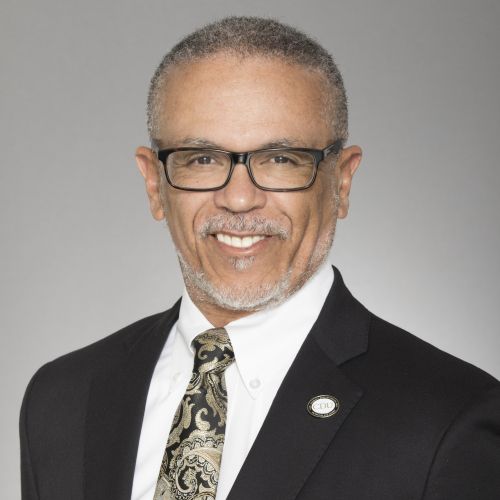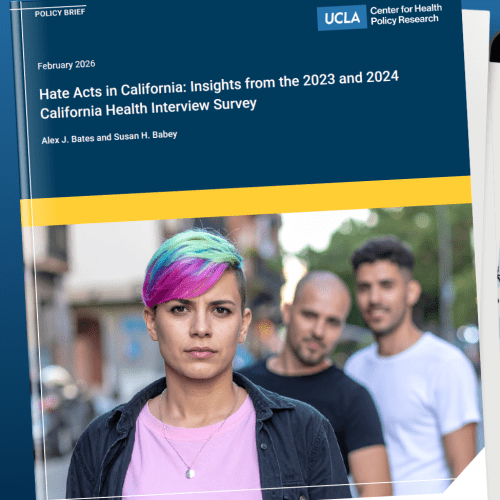Don’t forget about the long-term mental health impacts of wildfires
Dr. Yu Yu is a physician and senior research analyst at the UCLA Center for Health Policy Research (CHPR)

Dr. Yu Yu is a senior research analyst at the UCLA Center for Health Policy Research (CHPR) who currently focuses her work on examining the health impacts of weather and climate with an emphasis on wildfires. This research includes investigating environmental exposure distribution among different groups and identifying which community groups are at greater risk for the sake of reducing health threats, eliminating health disparities, and improving preparedness and response in environmental and social justice.
Following the January 2025 wildfires that devastated the Eaton Canyon and Pacific Palisades neighborhoods in Los Angeles County, Yu Yu and Dr. Ninez Ponce, professor and endowed chair in the UCLA Fielding School of Public Health's Department of Health Policy and Management, as well as director of the UCLA Center for Health Policy Research (CHPR), reviewed data from the California Health Interview Survey (CHIS) to learn more about who was affected.
In this “Ask the Expert” Q&A, Yu Yu talks about insights gained from studying how data from CHIS — the nation’s largest population-based state health survey — could inform and shape recovery efforts.
Q: What’s the association between the physical and mental health effects of wildfires?
Yu Yu: While many studies have documented wildfire-related physical health impacts, the effects on mental health and well-being are less understood. Prior studies assessing mental health outcomes associated with disasters have identified increases in diagnoses and medication prescriptions for anxiety, depression, etc., but few explored the impacts of wildfires on mental health.
The most recent California Health Interview Survey data showed that nearly 1 in 8 California adults said they experienced a wildfire in the past two years. And almost 2 in 5 California adults said they experienced smoke from a wildfire in the last two years.
CHIS data also showed that among adults whose households experienced an extreme-weather related event in the past two years, 1 in 5 said their physical health was harmed by smoke from wildfire and nearly 1 in 7 said their mental health was harmed by smoke from wildfire.
The stress of coping with the loss of a home, beloved ones, and other traumatic events — such as worsening water and air quality after a wildfire — can trigger mood swings, sleep disruption, and cause extreme nervous tension and/or depression. And these effects can last for several years.
Q: How can CHIS data inform wildfire recovery plans?
Yu Yu: The findings from CHIS ring the alarm and can serve as a crucial reminder in three key ways:
First, prioritizing mental health alongside physical health. While safeguarding physical well-being is crucial, the psychological toll of disasters must not be overlooked. So, mental health support should be an integral part of recovery strategies.
Second, emotional awareness of fire victims. It is very important for the fire victims to be aware of how they are feeling, preventing them from becoming overwhelmed.
Third, far-reaching effects of wildfire smoke. Even individuals far from the wildfire zones can experience negative effects. Wildfire smoke can travel thousands of kilometers, polluting distant areas for weeks or months. Thus, even if it's imperceptible, the impact on mental health can be significant and should not be overlooked.
Our findings demonstrate that wildfires have both physical and mental health impacts. The response calls for increased awareness and tailored strategies to address mental health challenges across different racialized and socioeconomic populations.
For additional information, see the UCLA CHPR release.

